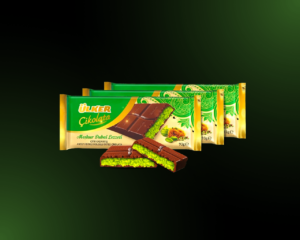- Corn imports from the US as a possible element of the agreement
- The use of corn as biofuel to protect agriculture.
- Tokyo demands the abolition of car tariffs.
- Mazda reports a 45% drop in net profit.
Tokyo seeks compromise, but not at the expense of agriculture
Prime Minister Shigeru Ishiba has announced that Japan is prepared to increase imports of US maize to ease tensions in trade talks with Washington. The maize would be used as a feedstock for biofuel production, thus bypassing the topic of rice, which is particularly protected by Japanese politicians due to its strong support from farmers.
In 2024, the US exported $2.8 billion worth of corn to Japan. For the US, this is an opportunity to rebuild exports after an 80 per cent drop in sales to China, and for Japan, an opportunity to show goodwill without compromising the interests of domestic agriculture.
25 per cent tariffs on autos remain a major obstacle
Despite its willingness to make concessions on corn, Japan is making it clear that it will not conclude a trade deal until the US removes 25 per cent tariffs on Japanese cars. The government stresses that the automotive industry is a strategic pillar of the economy that Japan is not willing to sacrifice in exchange for token concessions.
The effects of the tariffs are already evident: Mazda reported a more than 45% drop in net profit for last year and has not provided forecasts for the next year. A third round of talks with the US is scheduled for May. Japan may also offer technological cooperation in the shipbuilding sector, but without a solution to the tariffs, a final agreement is still in question.

![Japan considers importing corn from the US in exchange for removal of tariffs on autos [World News] Japan considers importing corn from the US in exchange for removal of tariffs on autos [World News]](https://foodcom.pl/wp-content/uploads/2025/03/News-world_20-1520x760.png)


![The European Union responds to US tariffs – possible retaliatory measures worth €95 billion [World News] The European Union responds to US tariffs – possible retaliatory measures worth €95 billion [World News]](https://foodcom.pl/wp-content/uploads/2025/03/News-world_22-7-600x300.png)
![US negotiates new trade deals with key partners without China [World News] US negotiates new trade deals with key partners without China [World News]](https://foodcom.pl/wp-content/uploads/2025/03/News-world_8-600x300.png)
![Indonesia slows down – GDP growth lowest in over three years [World News] Indonesia slows down – GDP growth lowest in over three years [World News]](https://foodcom.pl/wp-content/uploads/2025/03/News-world_20-600x300.png)

